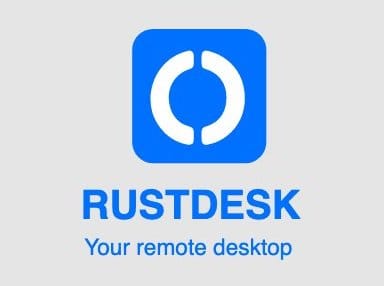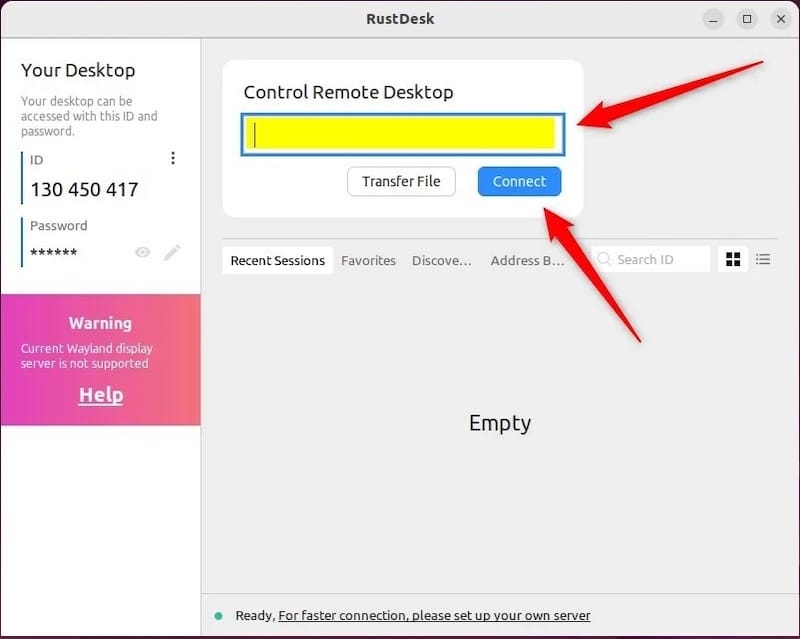How To Install RustDesk on Ubuntu 24.04 LTS

Remote desktop software has become an essential tool for IT professionals, remote workers, and anyone needing to access their computers from afar. RustDesk, an open-source alternative to popular solutions like TeamViewer and AnyDesk, offers a secure and efficient way to connect to remote machines. In this comprehensive guide, we’ll walk you through the process of installing RustDesk on Ubuntu 24.04 LTS, also known as Jammy Jellyfish.
What is RustDesk?
RustDesk is a free, open-source remote desktop software that supports multiple platforms, including Linux, Windows, macOS, iOS, and Android. It offers high-performance remote control capabilities, end-to-end encryption, and a user-friendly interface. Unlike many commercial alternatives, RustDesk allows users to set up their own server, giving them complete control over their remote desktop infrastructure.
Prerequisites
Before we begin the installation process, ensure that you have the following:
- A machine running Ubuntu 24.04 LTS
- Sudo privileges on your Ubuntu system
- A stable internet connection
- Basic familiarity with the Linux command line
Step-by-Step Installation Guide
1. Update Your System
Before installing any new software, it’s always a good practice to update your system. Open a terminal and run the following commands:
sudo apt update
sudo apt upgrade -yThis will ensure that your system has the latest packages and security updates.
2. Install Required Dependencies
RustDesk requires several dependencies to function correctly. Install them using the following command:
sudo apt install -y curl wget git build-essential libssl-dev libfuse-dev pkg-config3. Install Rust Programming Language
RustDesk is written in Rust, so we need to install the Rust programming language. Use the official Rust installer script:
curl --proto '=https' --tlsv1.2 -sSf https://sh.rustup.rs | shFollow the on-screen prompts to complete the installation. Once finished, reload your shell configuration:
source $HOME/.cargo/env4. Clone the RustDesk Repository
Now, let’s clone the RustDesk GitHub repository:
git clone https://github.com/rustdesk/rustdesk.git
cd rustdesk5. Build RustDesk
With all the prerequisites in place, we can now build RustDesk:
cargo build --releaseThis process may take some time, depending on your system’s specifications.
6. Install RustDesk
After the build process completes, install RustDesk using the following command:
sudo cp target/release/rustdesk /usr/local/bin/7. Create a Desktop Entry
To make RustDesk easily accessible from your application menu, create a desktop entry:
sudo nano /usr/share/applications/rustdesk.desktopAdd the following content to the file:
[Desktop Entry]
Name=RustDesk
Comment=Open source remote desktop software
Exec=/usr/local/bin/rustdesk
Icon=/path/to/rustdesk/icon.png
Terminal=false
Type=Application
Categories=Network;RemoteAccess;Replace “/path/to/rustdesk/icon.png” with the actual path to the RustDesk icon.
Configuring RustDesk
1. Launch RustDesk
You can now launch RustDesk either from the application menu or by running the following command in the terminal:
rustdesk2. Set Up a RustDesk ID
When you first launch RustDesk, it will generate a unique ID for your machine. This ID is used to establish connections with other devices.
3. Configure Security Settings
In the RustDesk settings, you can configure various security options, such as:
- Setting a password for incoming connections
- Enabling two-factor authentication
- Configuring IP whitelisting
Using RustDesk
1. Connecting to a Remote Machine
To connect to a remote machine:
- Open RustDesk on both the local and remote machines
- On the local machine, enter the remote machine’s RustDesk ID
- Click “Connect”
- Enter the password if prompted
2. File Transfer
RustDesk allows you to transfer files between connected machines. To do this:
- Establish a connection with the remote machine
- Click on the “File Transfer” button in the toolbar
- Use the file browser to select and transfer files
3. Remote Audio
To enable remote audio:
- Connect to the remote machine
- Click on the “Audio” button in the toolbar
- Select the desired audio input and output devices
Troubleshooting Common Issues
1. Connection Issues
If you’re having trouble connecting to a remote machine:
- Ensure both machines are connected to the internet
- Check if any firewalls are blocking the connection
- Verify that the RustDesk ID is correct
- Try restarting the RustDesk service on both machines
2. Performance Issues
If you experience lag or poor performance:
- Lower the video quality in the RustDesk settings
- Disable visual effects on the remote machine
- Ensure both machines have sufficient system resources
3. Audio Problems
If you’re having issues with remote audio:
- Check the audio settings in RustDesk
- Verify that the correct audio devices are selected
- Ensure the remote machine’s audio is not muted
Updating RustDesk
To update RustDesk to the latest version:
- Navigate to the RustDesk directory
- Pull the latest changes from the repository:
git pull origin master - Rebuild and reinstall RustDesk:
cargo build --release sudo cp target/release/rustdesk /usr/local/bin/
Security Considerations
While RustDesk is designed with security in mind, it’s important to follow best practices:
- Always use strong, unique passwords for RustDesk connections
- Enable two-factor authentication when possible
- Keep RustDesk and your operating system up to date
- Use a VPN when connecting over public networks
- Regularly review and audit your RustDesk connections
Congratulations! You have successfully installed RustDesk. Thanks for using this tutorial for installing the RustDesk remote desktop on Ubuntu 24.04 LTS Jammy Jellyfish system. For additional help or useful information, we recommend you check the official RustDesk website.
